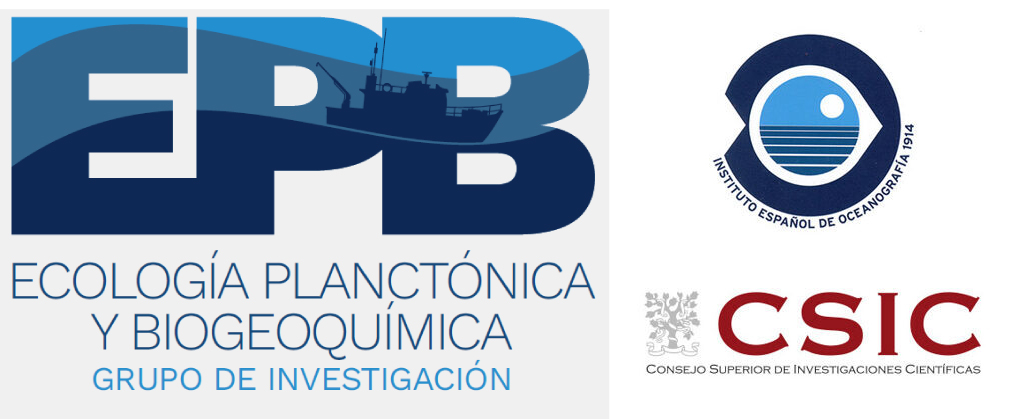The Plankton Ecology and Biogeochemistry (EPB) research group of the Instituto Español de Oceanografía (IEO) at A Coruña (Spain) carries out multidisciplinary research centered in the analysis of marine ecosystems from sustained observations in the ocean to laboratory experimentation and numerical modeling with emphasis on pelagic ecosystems. Among the group research lines are: sustained time series analysis of physical, biogeochemical and biological variables, studies on the exchange of nutrients, uptake of CO2 and acidification of the ocean, analysis of abundance, biomass, diversity and production patterns of phytoplankton, zooplankton and prokaryotic plankton, food web analysis using stable isotopes and coupled hydrodynamical-ecological models. The geographical scope of its research covers from oceanic basin scales (global ocean) to local studies of specific ecosystems, mainly near the rias of Galicia and the continental shelf and slope off the north and northwestern Iberian Peninsula, including deep hydrographical sections in the Atlantic Ocean and Mediterranean Sea. The group started as a team in the decade from 1970-1980 when they participated in several joint programs in the framework of the Joint Spanish-USA Treaty of Cooperation and Friendship, developing the basic knowledge of the ecology of the Galician marine waters. Later, they established and consolidated the ongoing, national level, multidisciplinary, oceanographic time-series observation system RADIALES project (Proyecto de Obtención de Series Históricas de Datos Oceanográficos, http://www.seriestemporales-ieo.net) providing basic information on hydrography and plankton variability along the coast of Spain. This project was initiated in A Coruña in 1988 with the main objective of understanding the variability of oceanographic conditions and of the ecosystem. The group has described the main oceanographic patterns in the area and linked them with the functioning of the ecosystem. Besides, frequent collaborations with other national and international research groups, allowed for a sustained participation of the EPB group in multidisciplinary oceanographic research worldwide.
